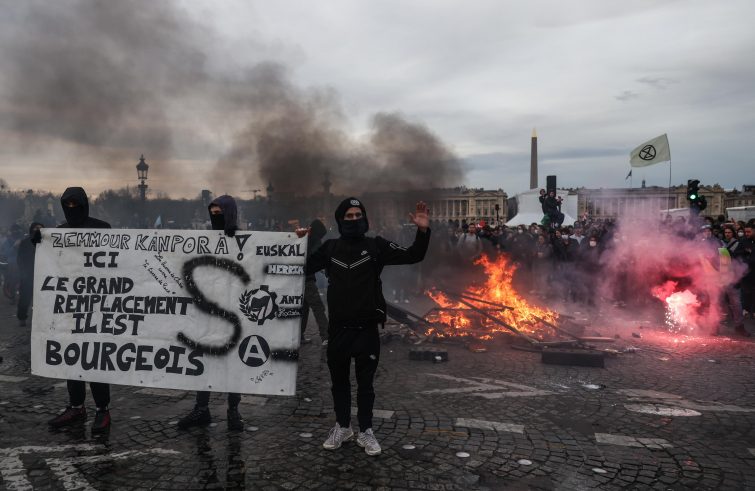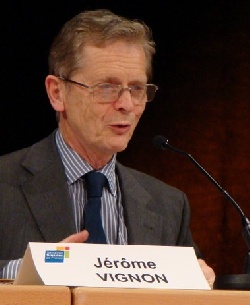
“This is an issue we have been following with great concern”, are the first remarks made over the phone by Jérôme Vignon, former president of the Social Weeks of France (SSF) and advisor to Jacques Delors during his term as European Commission president. Tensions are running high in France. Veritable urban guerrilla warfare occurred during the protests against President Emmanuel Macron’s pension reform (which raised the retirement age from 62 to 64) and the government’s decision to bypass Parliament through a confidence vote, not only in Paris but also in other cities, such as Nantes and Rennes. Some 6,000 people took to the streets in Nantes (in the north-west of the country) set up barricades, torching rubbish bins and other items. In Rennes (in the North), approximately 1,000 people were stranded in a shopping mall after student protesters attempted to break into the premises. Some 4,000 protesters marched in Place de l’Italie in Paris. Despite the appeals for calm voiced by the General Confederation of Labour (CGT), the union that had called for daily protests in cities throughout the country, protesters clashed with police. It ended with 76 people arrested, according to the prefecture.
 Mr Vignon, what exactly is going on?
Mr Vignon, what exactly is going on?
The anger displayed in the street protests is due to a lingering feeling of malaise, coupled by the awareness that their claims are not being duly considered. Those who are protesting are an important segment of the French population, notably the most disadvantaged middle class. They are not the poorest French citizens, but those with below-average incomes. Many of them have irregular or precarious jobs. These people are sending out very clear messages, which were those of the gilets jaunes in 2019. The people taking to the streets are saying that their difficulties are not being acknowledged and that important international and economic policy decisions are not aimed at promoting social justice or equitable distribution of income. This is a long-standing problem causing social discontent, psychologically determined by a lack of acknowledgement and visibility, and, in practical terms, by the practical difficulty of moving forward. These phenomena are manifested today in opposition to the pension reform.
Was this reform necessary?
It is absolutely necessary, also in the light of the international situation and the situation of France’s state budget, which has been deteriorating for at least four or five years, undermining competition and the resources needed to invest in an increasingly hostile environment. It is therefore a rather tragic situation, because – and I am saying this as an economist and former advisor to President Delors on macroeconomic issues – this reform is not only necessary. In fact, its adoption a matter of urgency. Unfortunately, it comes at a critical juncture and it involves a population bracket that has been experiencing distress for a long time already. And while the reform is justifiable from a financial perspective, from a social perspective it will affect the same groups that should have been left out.”
Is there a way out?
Right now, the spotlight is on the President of the Republic since, under the French constitutional system, the President is in charge of a situation that he himself has created. It is therefore up to him. If I were in his shoes, I would restore priority to social dialogue, in other words, by initiating other reforms on social issues such as ensuring occupational security for workers aged over 60 by providing the necessary means for extending the working age; granting improved access to vocational training for people over 50; seriously addressing the issue of job insecurity, especially in the most precarious job sectors such as catering and personal services; and finally, supporting workers’ participation in corporate governance.
Why have the French bishops opted to keep a low profile and avoid public statements on an issue that pertains to social justice?
The bishops likewise decided not to take sides – for either Macron or Le Pen – during the presidential election. It’s sad, but it should be remembered that the Bishops’ Conference of France is experiencing a period of extreme fragility due to the abuse controversy. But I think there is also a fear that expressing overly negative views on the reform could have the effect of further weakening the government. The political Right, and especially the extreme Right, benefit the most from this situation. If there were elections today, Le Pen would be likely to win. I can therefore understand why some bishops prefer not be involved in this process.









